What you need to consider before moving to Puerto Rico
If you are considering moving to Puerto Rico for the sun, sand, tropical climate, beaches, and culture than good for you! No need to rush. Take your time, visit the island, and visit the island again.
Everyone is in a different boat and there are a ton of things to consider before taking the plunge.
Deciding to move to PR for tax incentives
Moving to PR to qualify for ACT 22 and/or 20 requires you to be on the island for 183 days. This year that would mean your days on the island would have to start counting on June 30th. So if you are looking to qualify for this year, there is still a little time, but not much so you better get your ass in gear.
We started the process about a month ago (through an agency) to rush and ensure that we will qualify as residents this year. If we didn’t go through an agency and decided to figure things out for our own, we would have been stuck running in circles. Especially since, while, I may be bilingual but I don’t speak any Spanish.
Do you have a family?
Relocating a whole family is a bigger deal and will require more logistics and knowing more information. Where are the good schools located? If you are single or a couple then it’s much easier.
For us it was just the two of us plus our pets. Easy to relocate.
What is your income source?
If you are a digital nomad or a crypto trader you don’t have anything tying you down to one place. If you or your spouse has an on-site job and relying on that income that could be difficult finding employment (depends on your field and occupation).
I work remotely as a freelancer/ blogger and my husband does his thing with crypto. Our income sources easily travel with us.
Downsizing or shipping
If you own a house on the mainland, you will have to sell it which will take time. Or transfer the title to a trusted relative. Or I think you might also be able to keep it if you make it a rental (consult a CPA).
Most people find it cost effective to sell their furniture and other belongings before moving. Otherwise, you will need to hire a moving company and get a quote on how much it will cost to ship everything over to the island.
We already were downsized and living in a motorhome to a few suitcases would be all that was needed.
Excise tax on shipping to the island
Also, the PR government has a lovely excise tax on basically anything and everything getting shipped to the island. You will have to pay a tax to ship your belongings and your car.
For example, “An EEI is required if moving any single item or group of similar items (like a guitar collection) worth more than $2,500 by itself (used value)” There are no customs fees but there is an excise tax that goods are subset too. source
I think the best way to do this is to use a professional moving company. There are two different types of moving companies: a full-service and a DIY. Obviously, the full-service will be more expensive. Shop around and get a few quotes would be my recommendation if you decide that you want to ship your belonging to the island.
Different Culture
Going on vacation to Puerto Rico is totally different than actually living here. We’ve only living here for 1.5 weeks and are already starting to notice differences…. and annoyances.
Things are just….different. And it might take you time to adjust.
Here are some of the things I've noticed (in the very short time I've been here).
Driving can be compared to Europe in some ways with the aggressive driving and small winding roads. But there are a few things that make the driving experience in PR unique...
- There are small, winding streets and often turn into “one way” due to the cars parked on each side.
- Drivers are aggressive and unpredictable
- You will get cut off in traffic at every opportunity
- They drive like they have no idea what a turn signal is
- We barely saw speed limit signs
- Lots roads that have "surprise" merging (no warning, just merge. now.)
San Juan is the most difficult to navigate, very narrow roads, lost of one-way streets, and parking is had to find.
Pro Tip: Most people park on the streets, but "no parking signs aren't as common as we are used to at home. We didn't know this, but you can tell if you can park on the street based on the color of the curb.
White: Parking allowed
Yellow: No parking (ticketed and/or towed)
At least in the beginning, you will NEED a GPS to get places. Google maps sometimes makes up roads. There will be times it will take you on roads that don't appear to be roads at all.
The good news is that people are extremely friendly and welcoming (that I’ve experienced so far.)
And the food is AMAZING! Especially the local places, everything is so fresh and beyond delicious. Make an effort to try new dishes. We were in the Luquillo area and stumbled upon a little gem beachside called Boardriders , they had indoor/outdoor seating, AMAZING food, friendly service, and eating lunch with views of the beach was beyond awesome! (great prices too) So, if you are in the area, check them out!
Yes, you'll see Burger Kings, Wendy's, and McDonald's all over the island but try something new!
All over the Island, you will find that many restaurants and cafes have outdoor seating similar to what you find in Europe. This is one of my favorite things, it reminds me of home!
Don’t be shy and at least make an effort to get to know the culture and language, it’s ok to step outside your comfort zone!
Housing
In my next post, I’m going to talk about buying vs. renting. Each has their own advantages and I have my own recommendations on the topic. Know that if you buy a property, everyone works on “island time” and it’s not uncommon for the process to get dragged on for over 90 days.
Renting can be cheap ($600 or less), some rental prices are comparable to the US ($1,000 - $2,000) and others can be very, very expensive. Price will be deterred by location, size, housing type, HOA, gated community, utilities, etc.
Old Jan Juan is commonly known to be pricey and costs all over the island generally increase the closer you get to the beach.
Renting has its own set of issues and I’ll get to that in my next post as well.
Climate
Can you handle the tropical climate? Everyone likes to daydream about selling their possessions and moving to a small tropical island, living stress-free on the beach with a margarita in hand.
But can you handle the heat? The climate in does not change much, day to day. Practically every day you will have sun, clouds, a shower (or two), and you may or may not have an ocean breeze (depends what side of the island you are located on).
Know that the temperatures of Puerto Rico average between 75-85 degrees Fahrenheit (24 – 29 degrees Celsius) year-round and humid (remember the tropical island part?).
YOU: “Big deal, I’ll turn on the air conditioning”
ME: “LOL. What A/C? Electricity is expensive. Like even up to $0.33 kWh expensive.”
But it’s all on your perspective, we were used to paying $0.09 kWh so hearing that in some cases it could cost or go up to $0.33 kWh was a shock. In fact, one of the reasons most homes do not have A/C is due to the high and changing costs of electricity.
San Juan is very popular and obviously the biggest city on the island. But Puerto Rico is awesome in the variety of climates and features it has for those that might not like the city life...
There is the beach life for those how like the hot, humid, breeze, beach life, stormy.
You can live in the mountains at a higher elevation where it's much cooler. And if you like it hot and dry, the south part of the island is for you. So there is something for everyone!
Electricity & Water
Electrically and water and not dependable like they are on the mainland. Your power and/or water will go out and for carrying amounts of time. It’s one of those things that you learn to expect and live with.
From what I have heard, the east side of the island tends to have more reliable electricity than the west.
The majority of homes actually don’t even have A/C, and rarely have central air. If you live on the beach that is on the side f the island that gets a breeze than A/C might not be something you'll ever need.
But don’t that my word for it. A lot of the information about the high cost of utilities we read online from other people who moved/live on the island. Another warning we were given is that utility prices change and could increase without notice. Again, this is from what others have said.
Healthcare and medical
While not a state, Puerto Rico’s health care is of high quality. I didn’t know this (I’m not employed in the traditional sense) but health insurance is not typically provided but employers. Instead, it is purchased individually from the private sector. source
Heath insurance cost is one of the things that made me REALLY excited about living in PR.
You see up until the age of 26 I was covered by my mom’s plan from her employer. She is a nurse and her health care insurance is top notch.
But this year I will be turning 26 so I had to start shopping for my own coverage. I liked the provider I had while under my mom’s coverage. So I talked with a market representative and if I wanted to continue to stay on the plan I was one it would be $450+ just for myself and $850+ to include my husband as well.. just health insurance, not including visions and dental
WTF… $850+ A MONTH ?! That’s more than the cost the mortgage on our first house.
We will be purchasing insurance in PR in the next month and from what other's are saying it costs around $200 a month (that can even include visions and dental).
So cheap insurance sounds great but what the catch?
The great news is that the quality of healthcare can be compared to that of the US and the doctors are certainly qualified. The bad news is that even doctor’s offices can run on “island time”.
So you may have a 9 am appointment, but will not be seen until perhaps 2 pm. This is what I’ve heard from the people I’ve talked to on the island. I’ll have to experience it myself and share that with you guys on my first appointment!
I believe that there are three main health insurance companies. I've been told that SSS tends to be the best option, and the one most often selected and recommended by other expats. MCS is also a good option. I would contact both and compare plans/cost. The right option for you will be dependent on your needs and what you are looking for in coverage.
Just like in the US, the cost will vary depending on the person and other characteristics.
Cost of living
There is a debate on the cost of living in Puerto Rico. I think that rather looking at general numbers. One article says the “overall cost of living is about 13% higher than the mainland United States Source but you can’t take that at face value. It will depend on where in the US you currently live. Other publications Source have data that indicated the cost of living in PR is actually LOWER than the US. In the end, it all depends on where you currently live and your current cost of living.
It also depends on what part of the Island you live in. The most expensive cost of living will be San Juan.
Experian has a nice little “heat map” for visualization of the cost of living and a list of common goods with average prices for the city on the island. Source
The trend seems to be that the west side is generally cheaper than the east, but there are some exemptions.
When I was looking into the cost of living the best tool I found was this website because you can Calculate YOUR cost of living difference It lets you select a city in the United State, and then select a city in Puerto Rico to compare the cost of living between the two.
Do a cost analysis
If Puerto Rico is an option that you are seriously considering, do a cost analysis. In a future post, I'll write moving expenses and other expenses that you would be aware of but the best way to get a more accurate picture of how moving and living in Puerto Rico will affect your budget is to make an "annual budget". This suggestion comes from my days as a financial analyst, maybe that degree wasn't totally worthless.
You can easily do this in Google Sheets, they have a ready-made Annual Budget template. I created two, one to estimate our expenses if we lived in Puerto Rico and the other was if we decided to stay in the US and continue out motorhome road trip adventure. It was great to have actual numbers on paper for a visualization. Just Google search “google sheet annual budget” and it should be the first result.
This article was written for educational purposes based on my personal experience and opinions. This article should not be considered advice and I can not guarantee the accuracy of all the information, please do your own research.
IMPORTANT NOTE: As you are doing your own research and reading articles pay careful attention to the publication date of the article. A lot has changed in the last few years and the information could be outdated and misleading. (No, you can not find a beachfront apartment that includes utilities for $800 a month.)
Steemit friends: if you have any questions or curiosities about moving to PR or my experiences please ask! I’m always open to suggestions for my next posts!
With Love,
Sonja

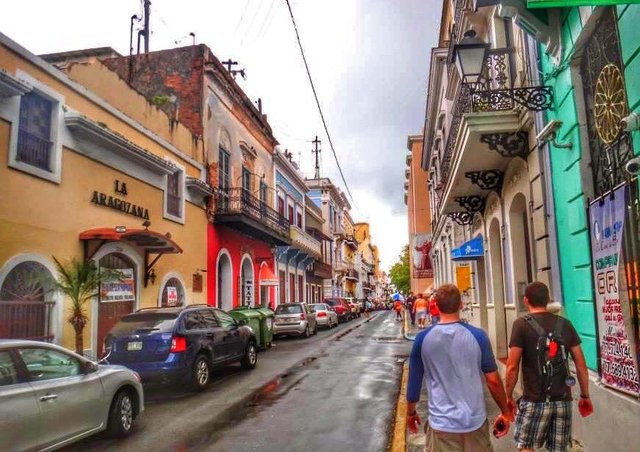
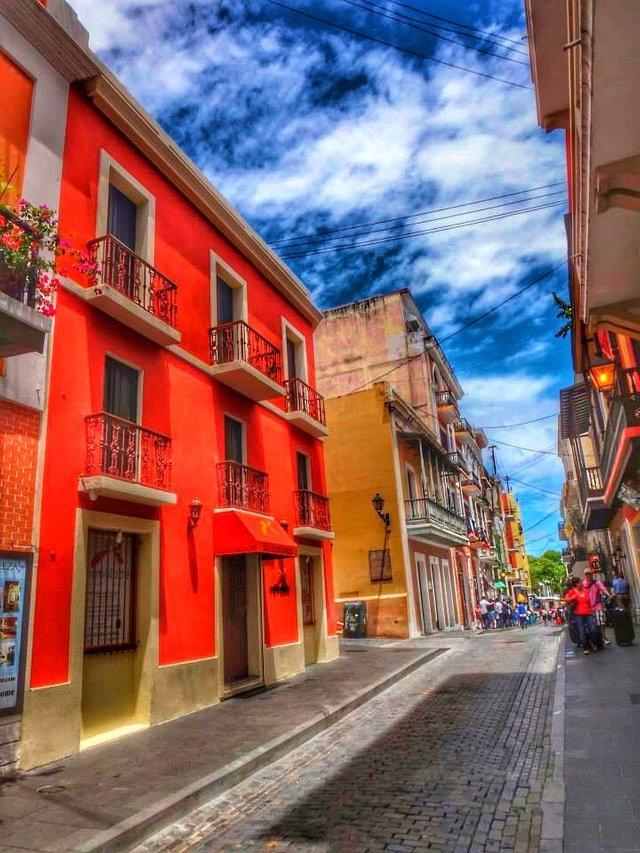
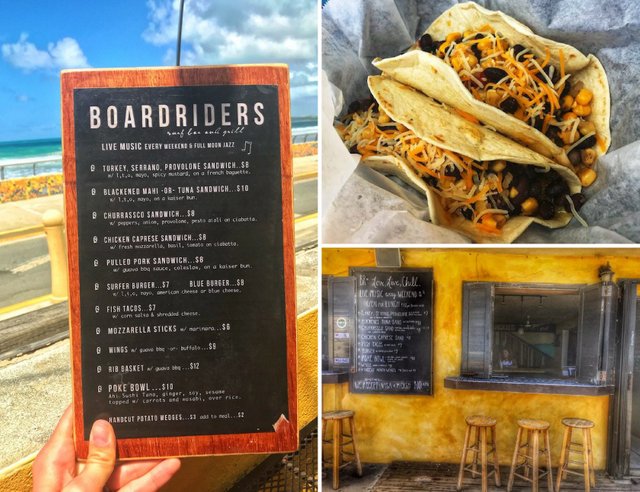
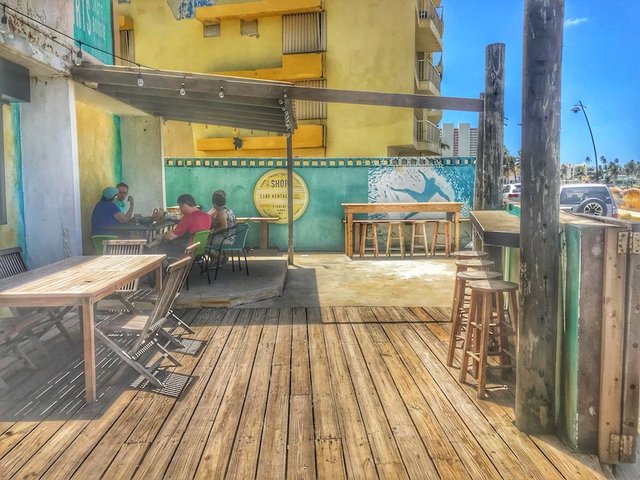
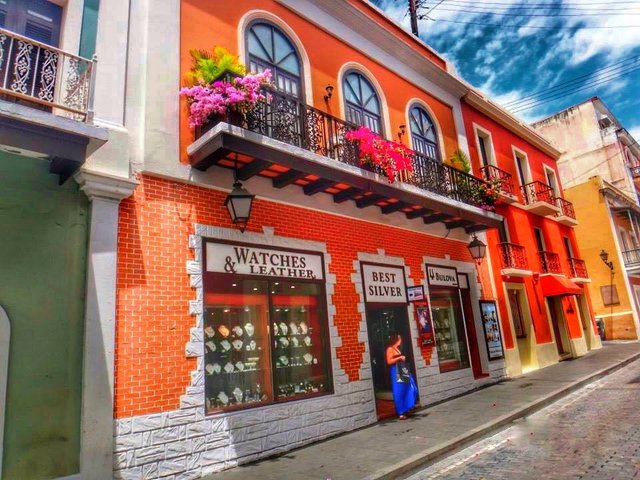
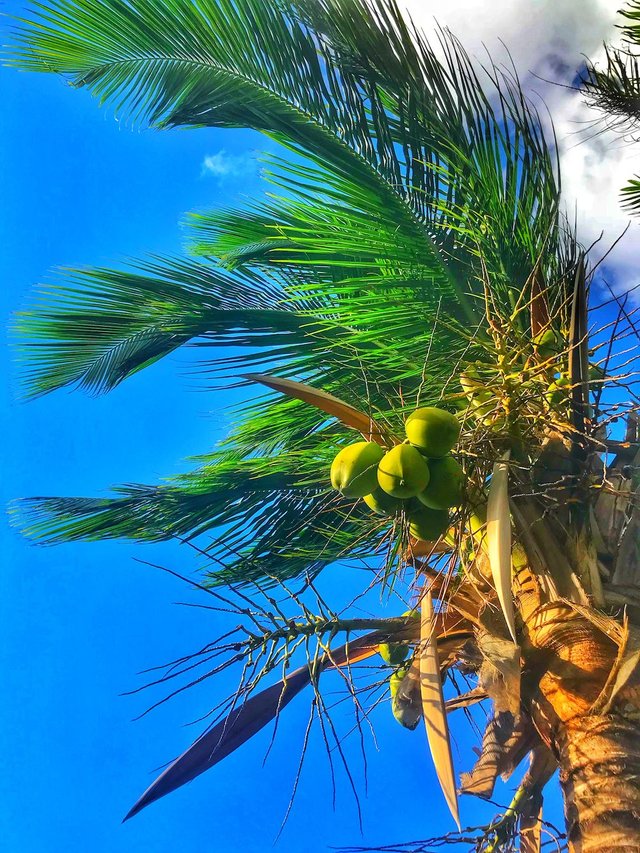
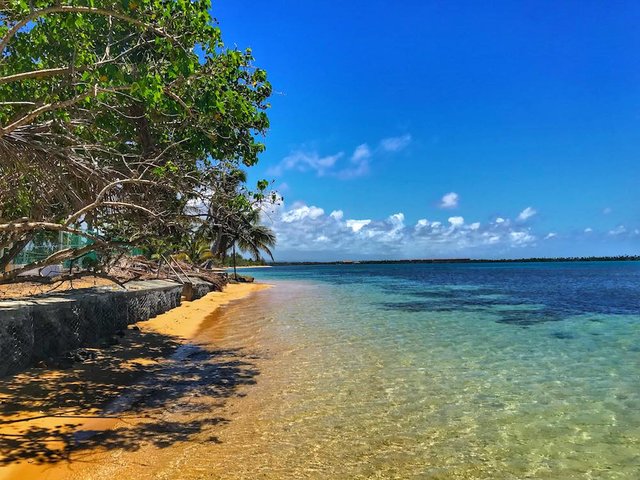
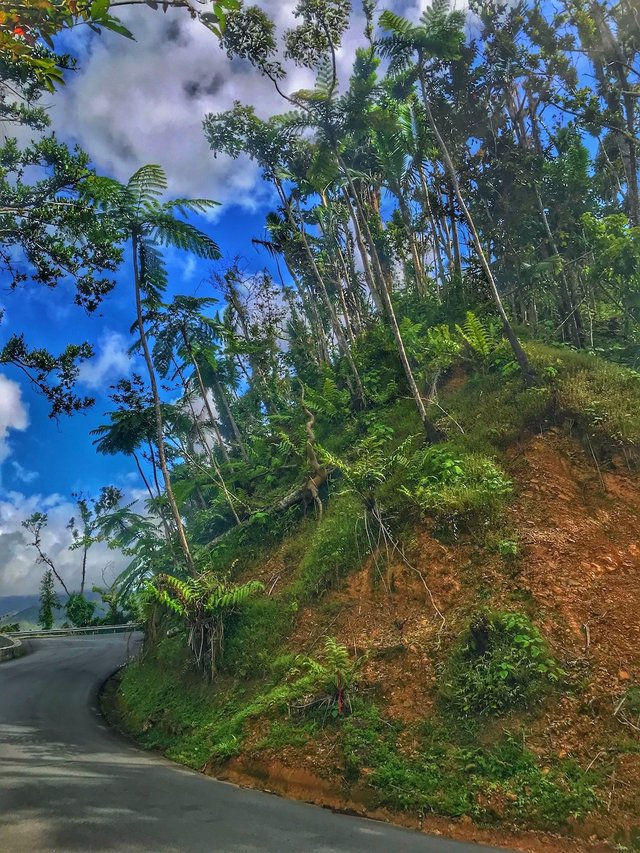
I lived in Condado, San Juan for a while which was a nice experience.
I haven’t been to Condado… yet, but from the pictures I’ve seen it looks beautiful - perks of city like but also beautiful beaches to escape too! What was your favorite thing about living there? And recommendations on good food or things to check out?
Nice post,thanks. I wanted to move to another country, I chose Puerto Rico, because I like the climate of this country. But I still haven't decided how I will move all my things. I was recommended https://www.dtcmovers.com/ they have transportation services to other countries and long distances, I think this is exactly what suits me